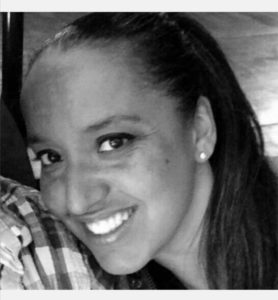Independent Social Worker Andrea Goddard, who has more than 20 years’ experience working with vulnerable children and families including 12 years frontline child protection work, outlines why she doesn't agree with Black History Month.
I don’t agree with celebrating Black History Month during October, because it should not be restricted to be celebrated in one month of the year. In my view, Black History should be taught as a mainstream part of UK history, throughout the year, and throughout the education curriculum.
If someone typed in the search term “who discovered America?” into a search engine, it is likely that the results would be “Christopher Columbus”. This is what I was taught at school, and what many children being educated still believe. But there were already people living in America when Columbus arrived there. People of colour. People with a rich history of culture. So how could Christopher Columbus have “discovered” America?
We need to really examine the unhelpful narratives and re-tell history in its true form. I do not believe that Black History only has a place in history books. It permeates every part of society and raises some uncomfortable and interesting social dilemmas. Over the past year Cambridge University released their inquiry on the legacies of enslavement, Bristol saw the trial of the protestors who tore down the statue of Edward Colston. And who owns the Benin bronze?
Black History is not historical, it is current. It is still here, and we need to learn about it, in its full unspoken truth. And the truth needs to be balanced. Who are the Black heroes of the past, present, and future that children can aspire to follow? How do we celebrate and imbed Black achievements?
I am privileged to deliver Cultural Competency training to a number of local authorities, as well as for Independent Social Workers registered with WillisPalmer, and the main learning points always arise from reflection, reflection, reflection. We are all service users and experts from experience. We all have a history, a culture, values and ethics, whether personal or professional. But before you assess others, do you ever stop, pause, and think “Who am I? What is important to me? What is my culture? Where do I belong?”
As practitioners, do you reflect, and understand the community that you serve? Do you reflect on the social demographics? What percentage of the population speak English as their first language? What percentage of households live in poverty? What is the main religion of the community? How are the minority served and supported? How accessible are support services that we often refer families to?
Tom and Jerry - Old Rockin' Chair Tom Part 1 - YouTube)
I will leave you with a picture to reflect on. The question is: “Who is she?”
Is she the home-owner, or the housemaid? Reflect on what you think and what makes you think this? Why would you think this? Then ask your friends, family, different generations. You may be amazed at the different responses. And like most social dilemmas, there is no single answer to how we make our judgments.
So, although I will be attending Black History Month events in my area, I will also be attending events throughout the rest of the year. I will still be delivering Cultural Competency Training throughout the year, and striving to work with individuals, school, and local authorities to ensure that Blackness, in its vibrant and powerful entirety takes its place at the table, alongside others, all year round. Not just as a once a year guest.
By Andrea Goddard, Independent Social Worker
Andrea Goddard has more than 20 years’ experience working with vulnerable children and families including 12 years frontline child protection work. In 2010 Andrea trained as a Child Protection trainer for the Kent Safeguarding Children’s Board. In 2012 she undertook further modules with the NSPCC giving her full accreditation to provide safeguarding training. Andrea’s specialist training portfolio was based on the experiences of Black African / Caribbean families, with much experience being taken from her years of being a secretary/Chairperson for her local African Caribbean association.
Over the last three years Andrea has been delivering bespoke cultural competency training to local authorities (including adult and children's social care staff), and to schools. She is trained in Signs of Safety which is embedded in her practice and is also trained to use the ADAMS model, the PAMS model, and ParentAssess model of assessment. Andrea has been working independently for four and a half years and carries out parenting, risk, child and family, viability, SGO, Connected Carer assessments and others.




